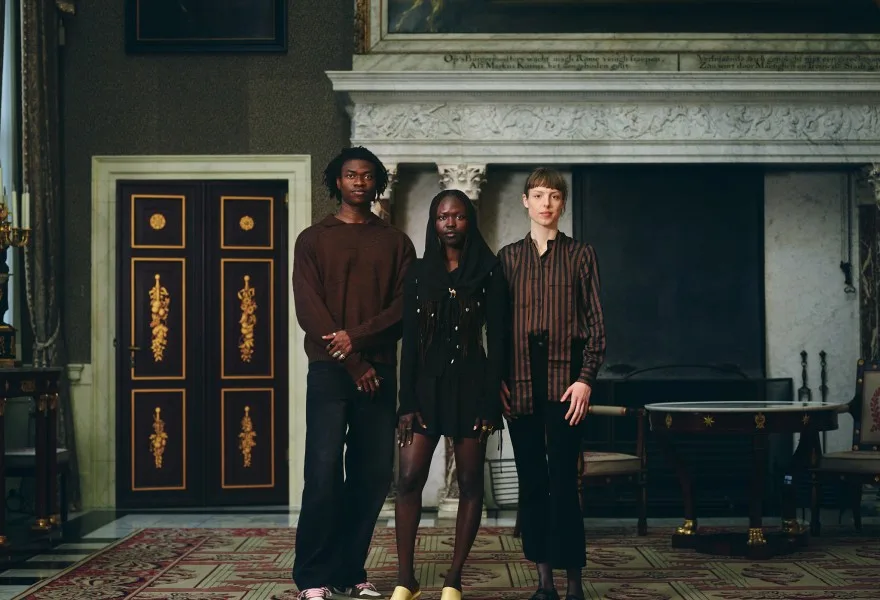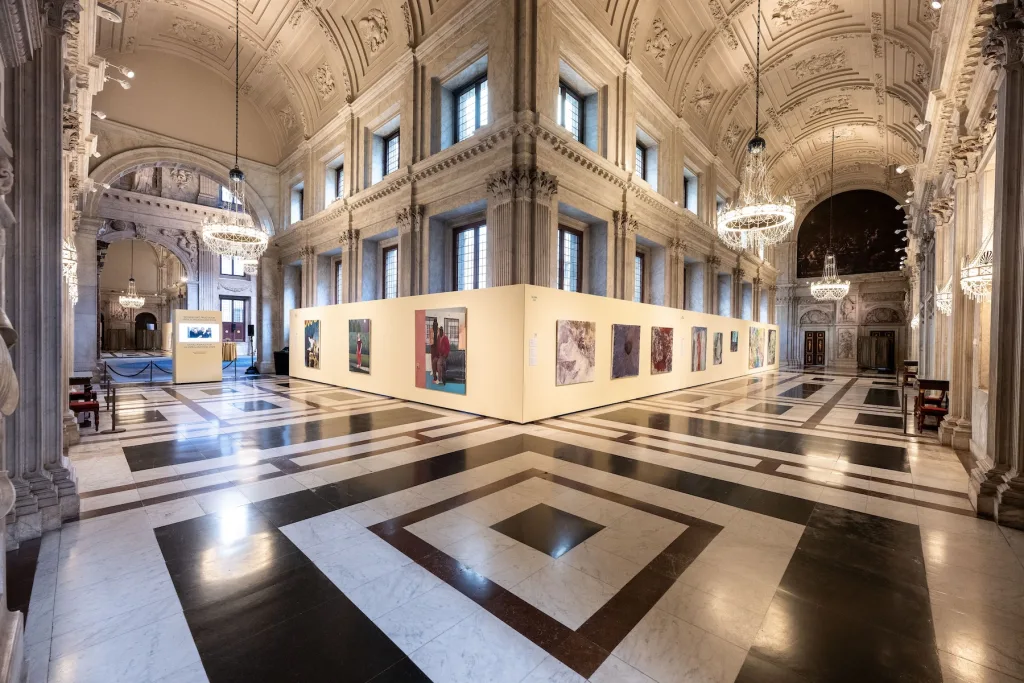Artists Taqwa Ali, Lieve Hakkers and Eniwaye Oluwaseyi were all presented with the Royal Award for Modern Painting by King Willem-Alexander in Amsterdam last Friday. Each of the winners received a cash prize of €9,000 at the Royal Palace on the Dam. An exhibition featuring the work of the three winners and 12 nominees will be on display at the Royal Palace on the Dam in Amsterdam until the 30th of March. Along with the Prix de Rome, the Royal Award for Modern Painting is the oldest art prize for up-and-coming young visual artists living in the Netherlands. The award was established in 1871 as the Subsidy for Free Painting by King Willem III. Every year, the prize is awarded to three artists under the age of 35, who each receive €9,000. In his speech at the 154th edition of the award, the King commented, “The young artists of today show how painting continues to thrive in 2025.”The jury, led for the second time by Mirjam Westen, curator of contemporary art at Museum Arnhem, highlighted this vitality in its report, citing internationalisation and the opportunities social media provide for artists. “Painting may be an ancient medium, but it continually evolves along with new forms, new ideas and new perspectives.”

Internationalisation and cultural diversity were evident in the large number of applicants who were not born in the Netherlands, but who live and work there. Notably, the number of female applicants exceeded the number of male applicants—reflecting the trend in art academies, where female students have been the majority for decades. Additionally, 113 applicants this year identified as self-taught artists. Reviewing all submissions, the jury noted that most artists favour figurative and realistic styles. Approximately 10% of the work is abstract, though the boundary between figurative and abstract is not always clear. The jury was also struck by the diversity of materials used. Compared to the previous edition, more nominees have already found representation in galleries: five out of fifteen this year, compared to three in the last edition. Interestingly, the previous edition of the Royal Award took place less than four months ago. The organisation moved the exhibition to the beginning of the calendar year, allowing it to remain open longer and reducing competition with other events at the Royal Palace on the Dam. The short preparation time had little effect on the number of submissions: 379 artists applied this year, compared to 483 in 2024.

The international aspect is also reflected in the winners. Two out of three were not born in the Netherlands and Oluwaseyi (Nigeria, 1994) has lived in the Netherlands for less than a year. He is currently a resident artist at the Rijksakademie. His paintings are offriends and family. After arriving in the Netherlands, he tried photographing the Nigerian and Ghanaian communities in Amsterdam Southeast for inspiration, but found a lack of intimacy in the pictured. This led him to a new approach and different paintings, depicting Black figures in non-existent, slightly surreal spaces. Oluwaseyi’s goal is to create beautiful paintings that spark conversation.
Taqwa Ali (Sudan, 1997) moved to the Netherlands at the age of 16 and graduated in 2023 from the Maastricht Institute of Arts. Her work appears abstract, with titles like ‘Blue Nile at Midnight’ and ‘Meena Kosty.’ Ali impressed the jury with her quiet, abstract compositions made from fragile materials like sand, clay and plant-based dyes. She uses these materials to express themes of displacement and translocation—movement from one place to another. The origins of the raw materials and their geological layers symbolise translocation. A native of Sudan, which has been torn apart by wars for years, Ali hopes her material choices will evoke a sense of home, capturing emotions, memories and longing. The third winner is Netherlands native Lieve Hakkers.


